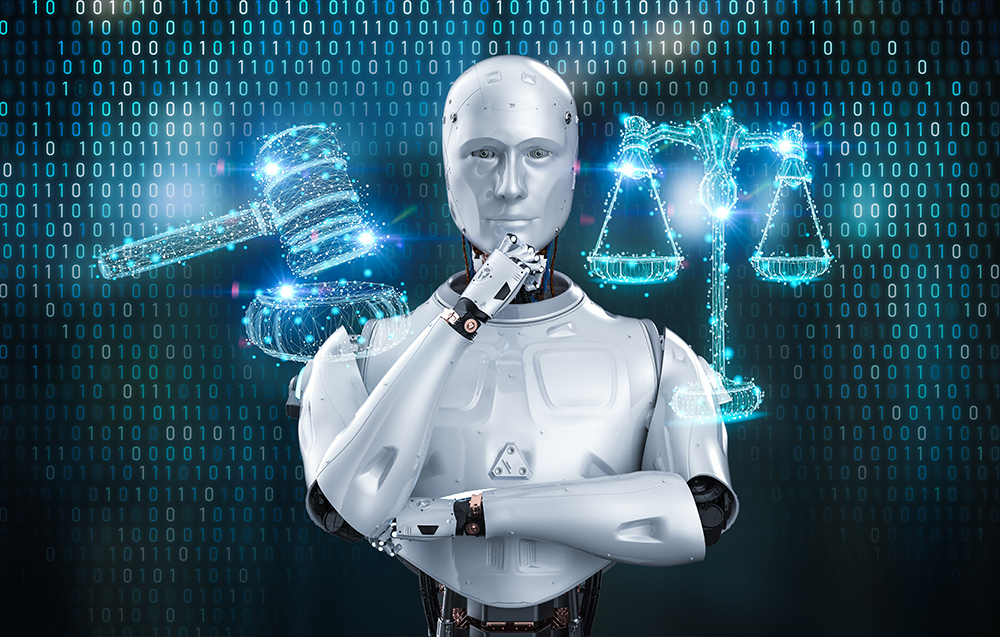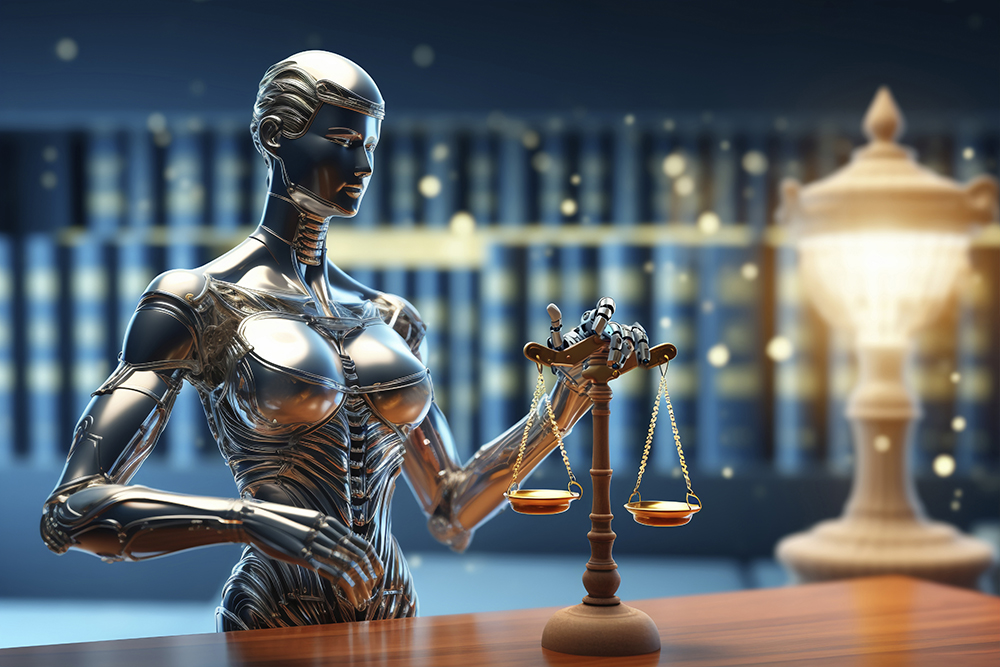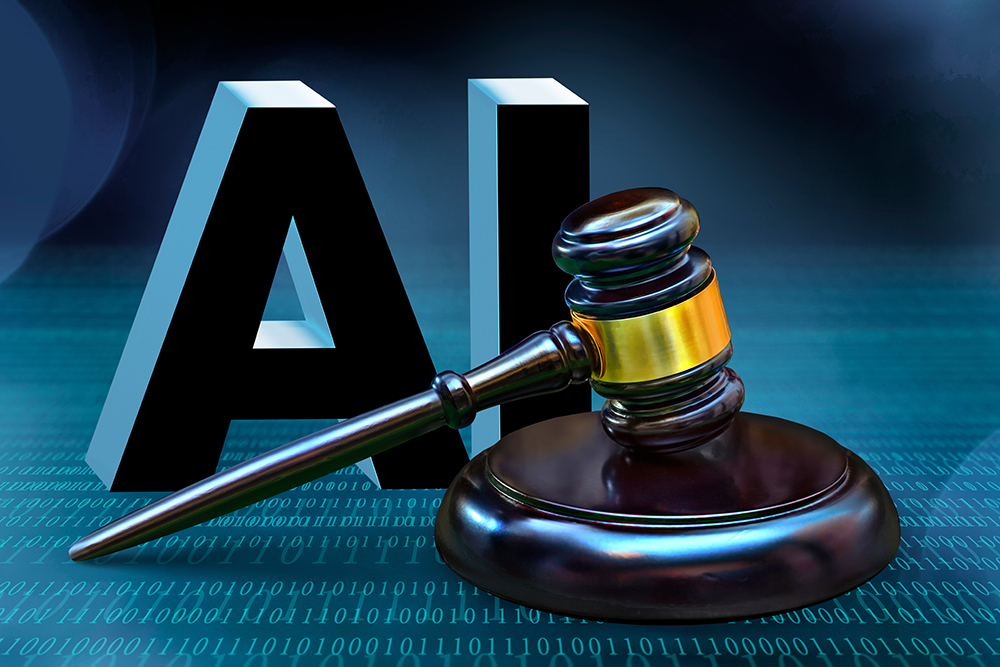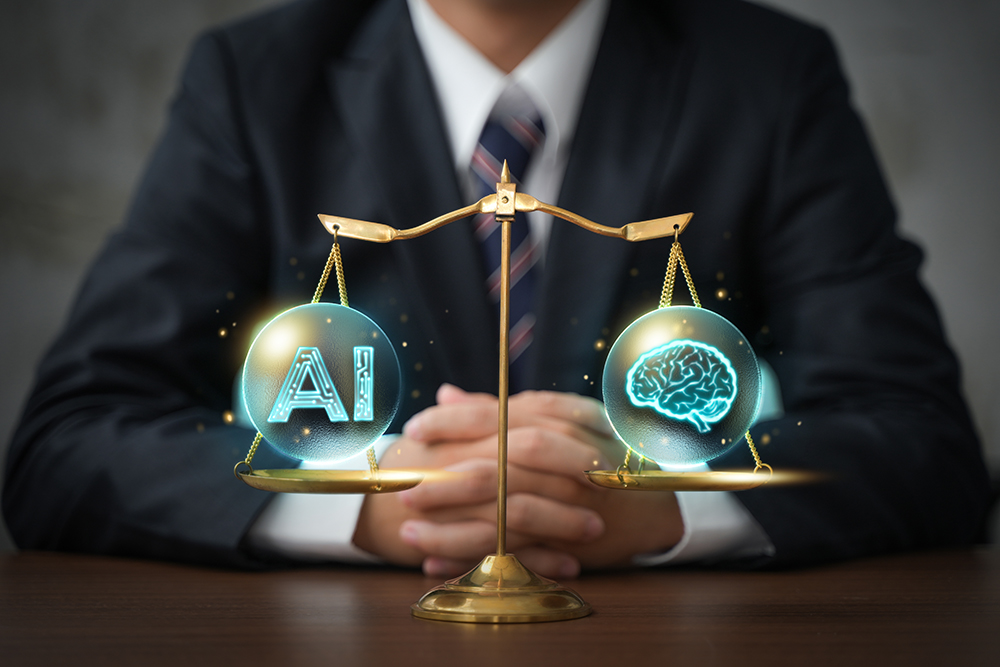Can AI revolutionise Uganda's judiciary?
Artificial intelligence (AI) has not been well-suited for African countries because it is primarily trained on data from the Western world. "If you ask AI, most of the answers you receive will be biased towards Western perspectives, as that is the data it has been fed," she explained.
With case backlog still a thorn in the flesh for Uganda's Judiciary, Artificial Intelligence (AI) could be the solution to drastically reducing this backlog
_________________
With case backlog still a persistent thorn in the side of Uganda's Judiciary, Artificial Intelligence (AI) could be the key to drastically reducing this backlog.
Implementing AI in Uganda’s Judiciary will greatly enhance efficiency and effectiveness by reducing case backlog, expediting case resolution, aiding in judgment writing, facilitating research, and managing caseloads.
Despite a 0.87% reduction in the Judiciary's case backlog, the volume of pending cases remains significant. According to the Judiciary's 2023/24 annual performance report, the courts handled 239,431 cases out of a total caseload of 401,269.
The report also indicates that the courts concluded the 2023/24 financial year with a pending caseload of 161,838 cases, of which 42,588 were backlogged, which accounted for 26.32% of the pending cases. 
AI is undoubtedly one of the most sought-after technologies today; it’s like a super-smart computer program that can think, learn, and solve problems.
The Judiciary has implemented several strategies to address case backlog. These include adopting technology such as the Electronic Court Case Management Information System (ECCMIS) and a Judiciary video conferencing system. Additionally, the Judiciary has introduced Alternative Dispute Resolution (ADR) mechanisms, increased staffing levels, and strengthened judicial accountability.
These interventions have slightly dropped the case backlog by 0.87% during the financial year 2023/24.
AI is undoubtedly one of the most sought-after technologies today; it’s like a super-smart computer program that can think, learn, and solve problems. It certainly would be an incredible technology for Uganda’s Judiciary to adopt.
“As one of the largest ‘text processing industries,’ the Judiciary heavily relies on language, documents, and texts as the core of its work, making the Judiciary particularly suited for the adoption of technologies like automation to aid in document processing.”
“AI-powered tools can sift through vast amounts of legal data, including case law, statutes, and legal precedents, to provide judges and lawyers with relevant information quickly and accurately. Expanding the use of emerging technologies, especially AI, is now seen as a crucial step in addressing these challenges,” reads part of the Artificial Intelligence and the Future of Judicial Systems in Africa Report (2024) by Lawyers Hub.
This accelerates the preparation process for trials and hearings, enabling judges and legal teams to make informed decisions faster.
For example, a judge in Colombia used ChatGPT when deciding whether an autistic child's insurance should cover all of the costs of his medical treatment. The chatbot provided a decision for the judge, along with links to the practices and explanations of the local Supreme Court. The plaintiff was satisfied with the outcome, and the decision appeared fair.
In China, judges use Artificial Intelligence (AI) to assist in making rulings in cases. They employ machine learning-based systems to help develop legal arguments and correct potential human errors.

AI is undoubtedly one of the most sought-after technologies today; it’s like a super-smart computer program that can think, learn, and solve problems.
The Chinese judiciary has been utilising AI for a while now. In late 2022, the highest court in China issued a directive requiring courts across the country to implement AI systems by the end of 2025. They believe that this will help expedite lawsuits and reduce the burden on judges. The decision is also aimed at addressing public dissatisfaction with the government regarding the backlog of cases.
‘Justice systems more accessible, efficient’
“AI can be a tool for human judges and not replace them. It can promote consistency in legal rulings and make justice systems more accessible, and efficient, and reduce judicial burdens, particularly in handling large volumes of cases,” said Miloš Jovanović, the President of OpenLink in Serbia.
He was one of the panellists during a session on “AI in the Judiciary: Usage, Regulation, and Ethical Concerns” at the recently concluded Internet Governance Forum (IGF) held in Riyadh, Saudi Arabia, at the end of 2024.
“I come from Serbia, and we have a real problem with many cases, and our Justices cannot complete every case. So, this is a really good example of how some technical systems, generally, technology like AI could help us to change everyday practice,” he argued.

The just concluded Internet Governance Forum (IGF) was held in Riyadh, Saudi Arabia. (Credit: IGF)
Jovanović participated in the panel alongside other insightful thought leaders, including Alexandra Kozina, a technology expert from Russia; Anda Bologa, an expert in AI and digital policy; Khaled Fattal, the Chairman and CEO of the MLi Group; and Dr. Eliamani Isaya Laltaika, a Judge at the High Court of Tanzania, who also served as the session's moderator.
How AI works in the Judiciary
First, AI adoption in the judiciary won’t be cumbersome because we already have digitised systems in the Judiciary, such as the electronic court case management information system (ECCMIS) and the judiciary video conferencing system. These systems generate rich, structured datasets crucial for AI algorithms.
Large language model tools are being explored for various tasks such as drafting legal documents, conducting legal research, and even predicting case outcomes.
According to Lawyers Hub, “AI can be used to develop predictive analytics tools that can assess the likely outcomes of legal cases based on historical data. These tools can help judges and lawyers anticipate the potential consequences of their decisions, leading to more consistent and fair judgments.”

AI could enhance the efficiency and effectiveness of the legal system, ultimately making justice more accessible to everyone.
These AI tools have the potential to transform how court professionals operate by bringing efficiency and precision to traditionally time-consuming processes.
AI can assist with transcription in courts by converting spoken words into text in real time. It can also aid in translation within the courtroom. Furthermore, AI tools can help judges evaluate briefs, conduct legal research, and draft rulings by analysing vast amounts of legal data.
Overall, AI could enhance the efficiency and effectiveness of the legal system, ultimately making justice more accessible to everyone.
But what could be at stake?
According to Jovanović, the integration of AI in the judiciary presents significant challenges. One major concern is the potential for algorithmic bias, which could reinforce existing social inequalities and result in discriminatory outcomes.
Studies, such as the one conducted by ProPublica, show that these tools can contain systemic bias in their data, leading to skewed results.
Jovanovic also cited serious ethical and regulatory issues, particularly concerning accountability for misguided AI-driven decisions, adding that “cybersecurity risks are a critical concern, as AI systems need access to highly sensitive legal data.”
“There's a risk that lawyers and judges may overly rely on AI-generated opinions and submissions, which can be inaccurate or misleading because there have been cases where AI hallucinates cases,” says Bologa.
AI hallucinations refer to instances where an AI model creates fictitious scenarios that do not exist.
Bologa explains that for effective use of AI in the judiciary, requires a pre-existing digitised system. Countries with limited digital infrastructure must first digitise their court archives and systems before AI can be effectively integrated. "This is a challenge many developing countries may face."

AI is undoubtedly one of the most sought-after technologies today; it’s like a super-smart computer program that can think, learn, and solve problems.
Tanzania, Morocco leading the way
In Africa, there are countries already leading the way in implementing some form of AI in their judicial systems, such countries include Tanzania and Morocco.
Morocco and Tanzania are pioneering the integration of Artificial Intelligence (AI) in their judicial systems. Morocco has begun using AI in its courts for tasks like transcription, research, and archiving. Meanwhile, Tanzania is leading the way in East Africa, implementing AI to expedite court processes, enhance efficiency, and tackle case backlogs.
How Tanzania’s Judiciary is utilising AI
Dr Eliamani Isaya Laltaika, a Judge at the High Court of Tanzania, shared how the judiciary in Tanzania is using AI to assist judges in various courts. He explained that they are implementing AI-powered systems to allocate cases to judges, summarise legal submissions, and facilitate research.
Laltaika emphasised the importance of balancing AI utilisation with human judgment to ensure accuracy and reduce potential biases. To enhance the effectiveness of AI, he mentioned that they are developing more comprehensive AI datasets and guidelines.
He noted that, despite employing AI in their demanding roles, judges consistently fact-check the outputs to ensure accuracy.
Although they have found it hard to bring every judge on board, especially the older ones, he says they have encouraged them to embrace the technology.
“It’s never too late for judges to learn new technology, and they can do so at their own pace with assistance from legal research assistants, which allows them to blend traditional wisdom with modern tools,” Laltaika remarked.
Is Uganda’s Judiciary ready for AI?
According to Patricia Ainembabazi, a Project Officer at the Collaboration on International ICT Policy for East and Southern Africa (CIPESA), countries like Uganda must adopt technological tools.
She pointed out that artificial intelligence (AI) has not been well-suited for African countries because it is primarily trained on data from the Western world. "If you ask AI, most of the answers you receive will be biased towards Western perspectives, as that is the data it has been fed," she explained.
Ainembabazi emphasised that for AI to be effective in Africa, it must be trained using local datasets to provide accurate results that are relevant to the region. "The more lawyers, judges, and others in the legal profession utilize AI, the more likely we are to receive accurate answers," she stated.
Eddy Babalanda, a lawyer based in Kampala, emphasises the importance of empowering and training judicial officers to fully understand the potential of artificial intelligence (AI) in the legal field. Many people currently associate AI only with chatbots like ChatGPT, but its capabilities extend far beyond that.

Eddy Babalanda, a lawyer based in Kampala, emphasises the importance of empowering and training judicial officers to fully understand the potential of artificial intelligence (AI) in the legal field. (Courtesy photo)
He pointed out that the regulatory landscape surrounding AI is lacking, stating, "We do not have specific laws or existing regulations that govern AI, and no administrative measures have been implemented. Without national laws in place, it becomes challenging to carry out AI implementation effectively."
Babalanda also highlighted the need for the Judiciary to establish guidelines for integrating AI into judicial systems. "These guidelines would help set key values, ensuring that the implementation of these tools aligns with the core principles of justice, human rights, and the rule of law."
Last year (2024), the Judiciary Permanent Secretary, Dr Pius Bigirimana, said the Judiciary was ready to adopt all mechanisms, including AI, in the administration of justice, taking a leaf from Tanzania.
“There is no reinventing the wheel. If Tanzania is now doing artificial intelligence, why don’t we learn from them? We shall do so,” Bigirimana said.

Judiciary Permanent Secretary, Dr Pius Bigirimana recently said the Judiciary was ready to adopt all mechanisms, including AI, in the administration of justice, taking a leaf from Tanzania. (File photo)
Bigirimana made the hint during a meeting with officials from the Southern and Eastern Africa Judicial Administrators (SEAJAA) at the Supreme Court in Kampala on June 14, 2024.
According to James Ereemye Jumire Mawanda, the Judiciary Public Relations Officer, the adoption of AI offers immense potential to enhance efficiency, reduce backlogs, and ensure justice is delivered promptly.
“With systems like ECCMIS already in place, integrating AI capabilities such as automated scheduling, predictive analytics, and fraud detection will further transform the judiciary into a modern, transparent, and responsive institution,” Mawanda said.